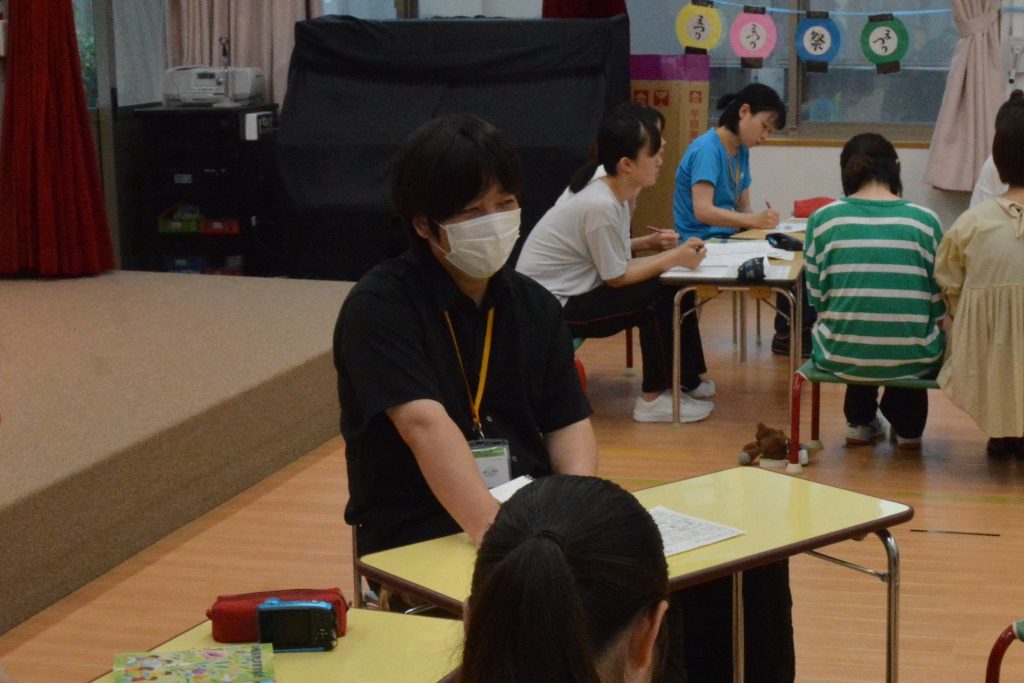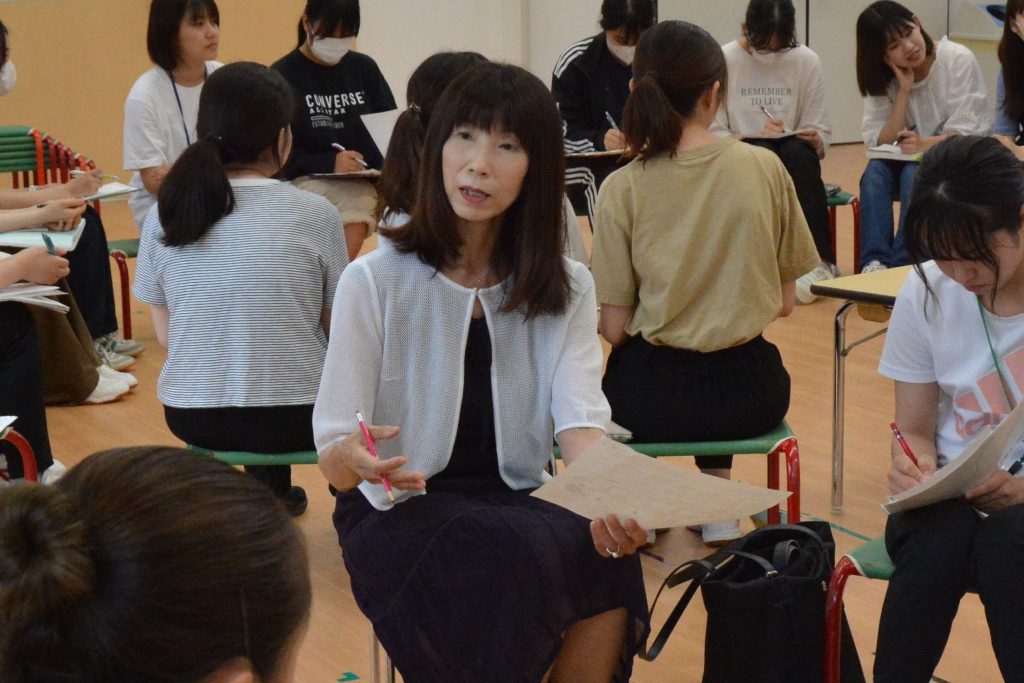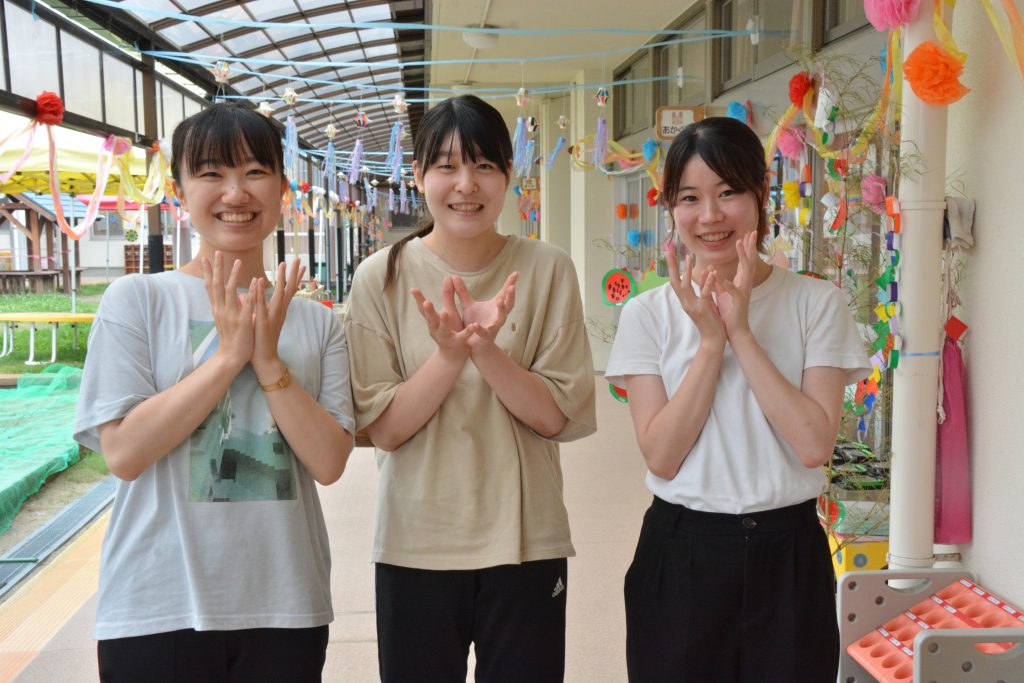In this class, students will learn about the developmental characteristics of 3-, 4-, and 5-year-old children by visiting a kindergarten affiliated with the Ehime University Faculty of Education and participating in actual childcare activities. In addition to these studies, students will engage in research discussions with teachers from the kindergartens where they were in charge of childcare, as well as case presentations and discussions among themselves, in order to enhance the development of practical teaching skills in the field. This is an opportunity for fourth-year students to gain valuable experience in preparation for the teacher employment examination, and for third-year students to gain valuable experience in preparation for their teaching practice, which will begin in September.
Lesson Content
This time, we covered the participation of the older group (5-year-olds) in childcare activities at the attached kindergarten, as well as the research discussion time.
Participation in childcare activities begins in the morning with welcoming the children to school. After welcoming the children who arrive one after another with a smile, we immediately guide them to their respective classrooms.
Although it was unfortunately raining on the day of the interview, the children seemed to be absorbed in indoor play, playing with building blocks, enjoying crafts, and running around the playroom energetically. The students actively called out to the children and joined their circle of friends. The smiling faces of the children were very cute and impressive, as they were able to play with their older brothers and sisters.
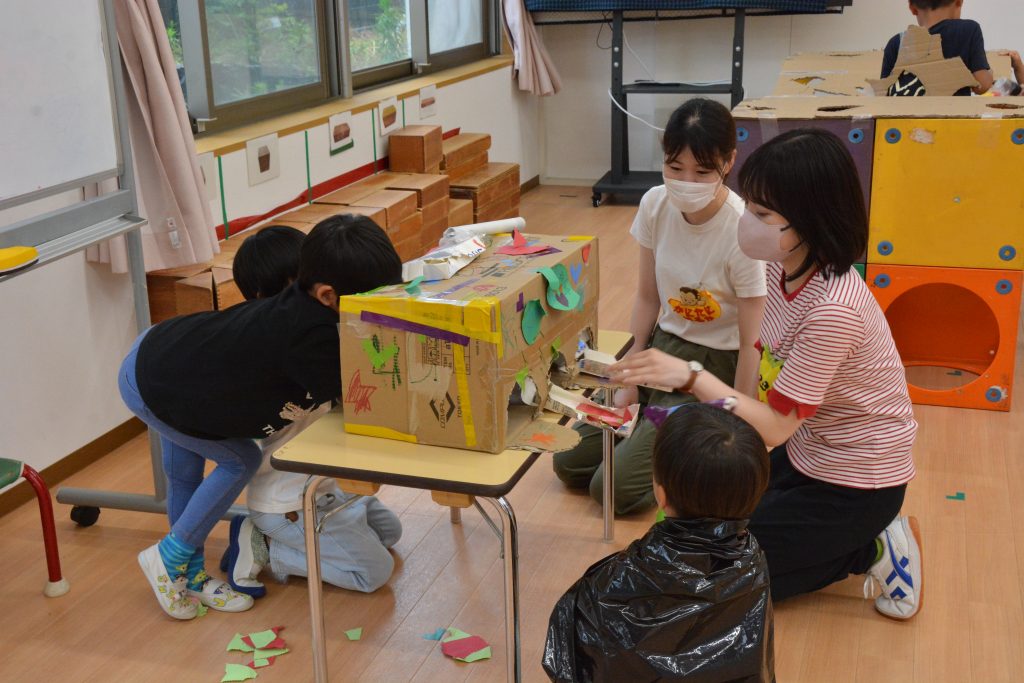
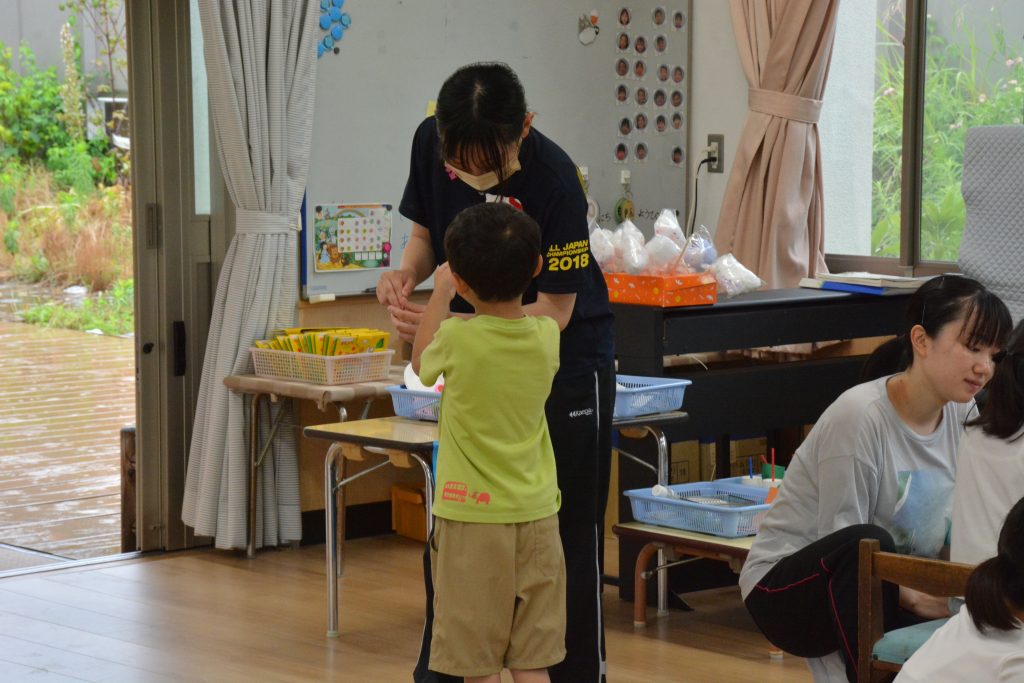
On this day, preparations were being made for an event called “Night Gathering. The “Night Gathering” is one of the annual summer events at the attached kindergarten, where the older students open many kinds of stores, such as food shops and game booths, and have fun.
The children gathered in the playroom and, under the guidance of their homeroom teachers, decided who would be in charge of which store. The children are fascinated by the many stores. While respecting each child’s opinion, the teachers’ voices helped to balance the children’s interests. The students watched with serious expressions as the teachers quickly prepared for the event.
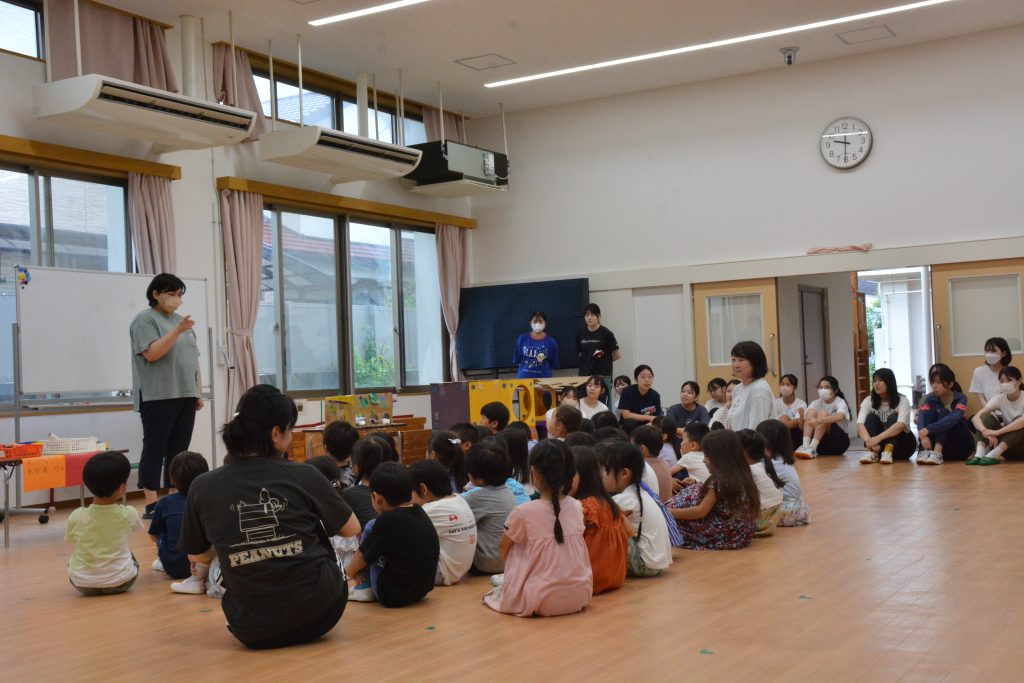
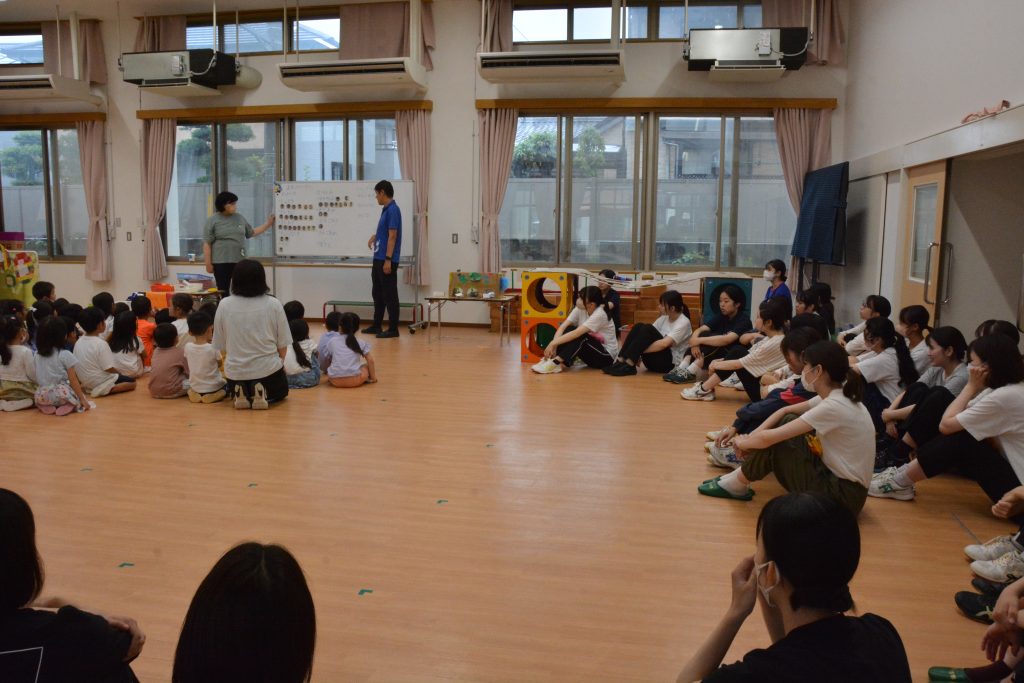
After the children went home, a research discussion was held among the students, university and kindergarten teachers. During the discussions, the participants reflected on the day’s events, giving examples of their own experiences and considering “how we, as teachers, can best guide the children. The students were divided into groups according to the year they participated in childcare (youngest, middle, and oldest), and actively exchanged opinions about the differences in teaching methods depending on the developmental stage of the children and the ideal form of early childhood education.
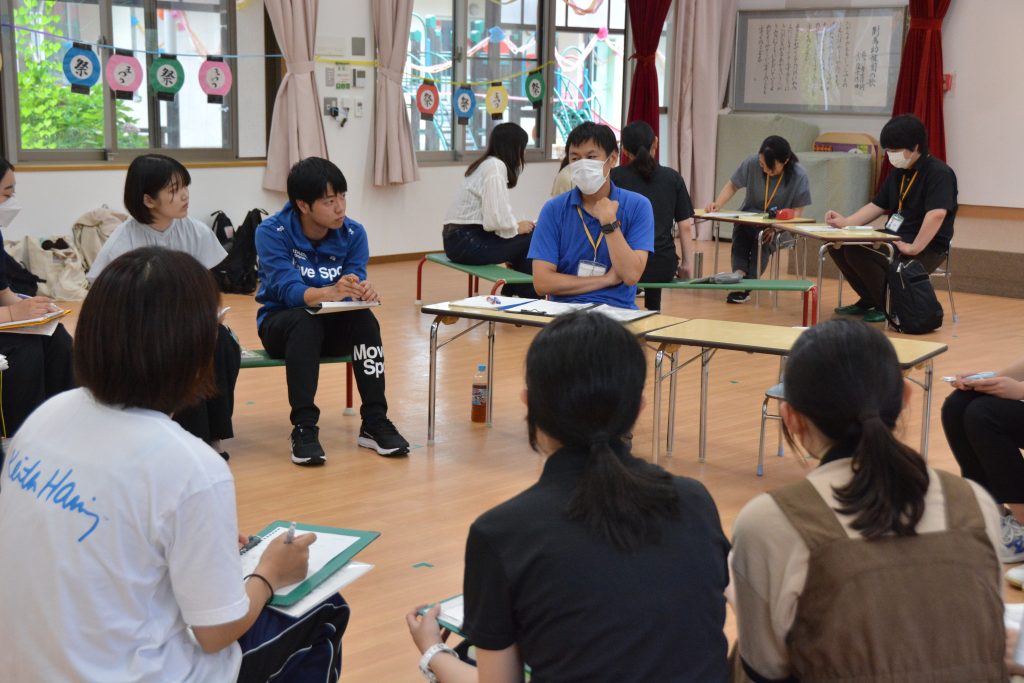
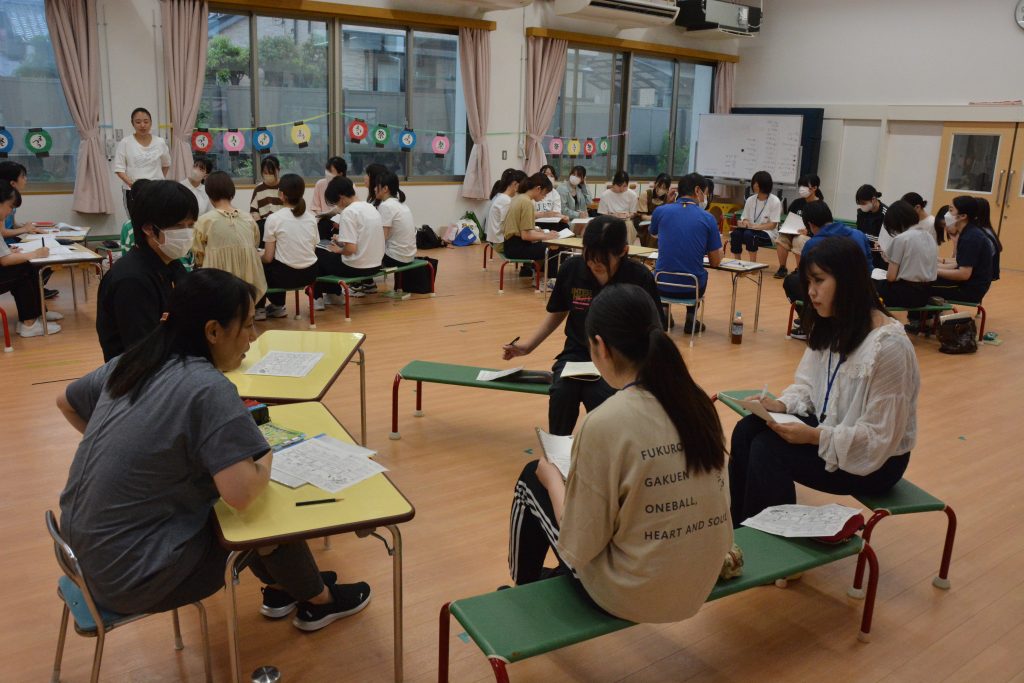
Of course it is important to study at a desk with a textbook in hand, but this time, I was able to experience the importance of “experiencing the real world” and “reflecting on the experience” through this class.
We hope that through their experiences in the field, students will deepen their understanding of early childhood education and become more excellent educators.
Comments from faculty
This course is not a classroom-based lecture at the university, but rather a course in which students visit a kindergarten attached to the Faculty of Education, Ehime University, and participate in the childcare activities taking place there themselves. In order to ensure that the experience gained through participation in childcare is not merely an experience, but rather enhances understanding of actual childcare practices, experiential understanding of early childhood development, and development of practical leadership skills, research discussions with childcare professionals in charge of childcare, presentations and discussions of case studies by students are included in the course.
In particular, research discussions with childcare providers are a valuable opportunity that is difficult to obtain outside of educational practice, and the attached kindergartens provide full cooperation. At the research conference, the childcare providers tell us about the aims of the day’s childcare and the most recent situation of the children, and they openly answer questions from the students about the day’s childcare. In order to improve our expertise and understanding of children, it is of course important to learn knowledge and skills related to childcare and development, but it is even more important to have opportunities to continuously and systematically reflect on our own childcare.
In a childcare setting, it is not easy to determine whether your childcare practices and understanding of children are working or going in the wrong direction. Even if you think you are doing well, you may be suppressing the child’s needs and thoughts and simply forcing him or her to obey you. In order to avoid such a situation, it is necessary to exchange opinions with other childcare practitioners and reflect on one’s own childcare from multiple perspectives, which will deepen one’s understanding of childcare and provide an opportunity to improve one’s practice. We hope that this lecture will be an opportunity for students to discover the fun of children’s play and activities, and to feel the meaning and significance of reflecting on their own childcare.
Student Comments
Shiori Hagiwara, 3rd Year Student, School Teacher Training Course, Faculty of Education
When you are in childcare, you may have questions about your own involvement. I think the most attractive point of the Early Childhood Education Practicum is that you can actually interact with children in the first period and discuss what happened in that period with other students, teachers of attached kindergartens, and professors of the university in the fourth period of the same day. Also, being able to practice again after having practiced the entire school year, I find that I have a better grasp of development than I did the first time, which gives me more confidence. Above all, it is a fun and fulfilling experience to be surrounded by many children!
Akari Sakamoto, 3rd Year Student, School Teacher Training Course, Faculty of Education
Students will learn practical methods of working with young children through activities such as catching insects, making mud dumplings, and playing make-believe with young children at an affiliated kindergarten. After the participation, students will share case studies and discuss questions that came up. The joy of practicing what we have discussed the following week and seeing young children respond to it will give you confidence for your future childcare practice. We encourage you to take this course, “Practical Theory of Early Childhood Education,” where you can learn a lot from working with children.
Haruka Kaniya, 3rd Year Student, School Teacher Training Course, Faculty of Education
In this course, students can actually work with young children in attached kindergartens and learn how to support them as teachers by paying attention to their development and reflecting on their own interactions with them. In addition, at the conference held after the participation, students can exchange opinions with other students, think about how to interact with young children from different perspectives, and receive advice from teachers at the attached kindergartens, which will provide them with many learning opportunities.


